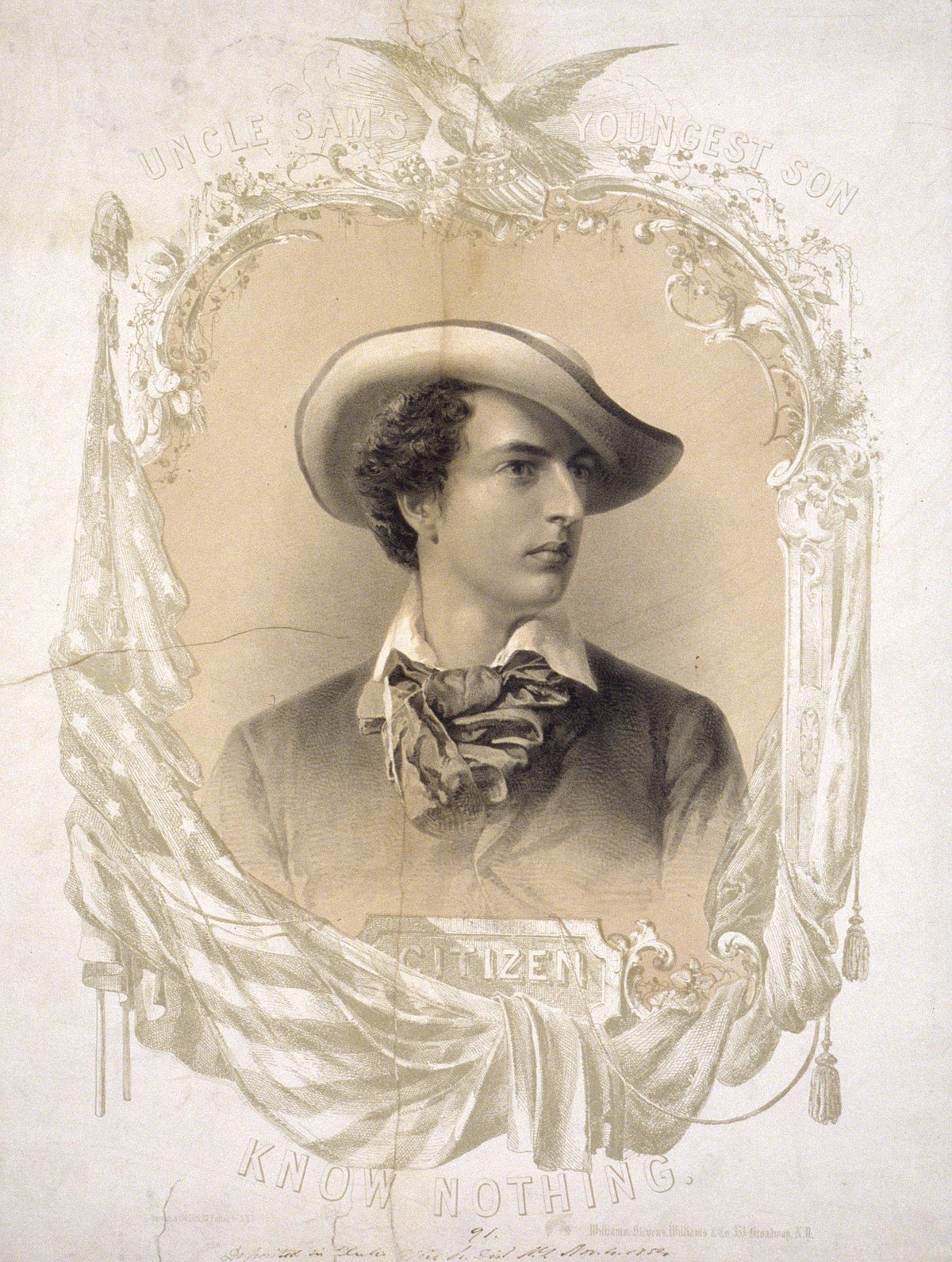Know-Nothings Redux
 |
Back in the 1850s a political party emerged that came to be known by the moniker "the Know-Nothings. The official name was the "American Party." The "know-nothing" label was a reflection of its "secret society" inclinations. More specifically it was a nativist party, that largely directed its ire against Roman Catholics. In 1856 they even put up former President Millard Fillmore as their candidate, though it's not clear that he was a member of their group. The targets at the time were the Irish and Italians, both of which came from predominantly Catholic countries. It may be hard for many today to conceive of a large anti-Catholic contingent in the American populace, especially when six of the nine Supreme Court justices are Roman Catholic, but such was the case back then.
Well, that mood is with us again. We see it in the anti-immigrant verbage of Donald Trump, which has pushed other GOP candidates, though not all, to adopt similar verbage. Trump talks of building a big wall and making Mexico paying for it. He also talks about an embargo on Mexico, which is our third largest trading party. These candidates are also talking about abolishing "birth-right citizenship."
What is birth-right citizenship? It is the constitutionally guaranteed right of any person born on American soil to have American citizenship. Where does this promise lie? It's in section one of the 14th Amendment.
Section 1. All persons born or naturalized in the United States, and subject to the jurisdiction thereof, are citizens of the United States and of the State wherein they reside. No State shall make or enforce any law which shall abridge the privileges or immunities of citizens of the United States; nor shall any State deprive any person of life, liberty, or property, without due process of law; nor deny to any person within its jurisdiction the equal protection of the laws.
The language is pretty clear. If you're born here you're a citizen. If you want to change that you'll have to amend the Constitution. Until that happens, if you're born here you're a citizen.
Now, do we have an immigration problem in the United States? Most assuredly. Our immigration laws are not up-to-date. They also don't account for the whole issue of migration patterns of this era. We're seeing Europe struggle with a migration crisis as persons flee the turmoil in Syria. Millions have fled, especially those who are religious and ethnic minorities. So are we ready to wrestle with such things, or are we happy to rejoin the Know-Nothings and adopt nativist tendencies? Remember this -- the targets of nativist sentiment today may end up becoming mainstream citizens tomorrow. After all, being Irish Catholic and Italian Catholic is no longer a problem!
Because I'm a pastor and theologian and not just politically inclined let us remember the prophetic call to welcome the stranger:
17 For the Lord your God is God of gods and Lord of lords, the great God, mighty and awesome, who is not partial and takes no bribe, 18 who executes justice for the orphan and the widow, and who loves the strangers, providing them food and clothing. 19 You shall also love the stranger, for you were strangers in the land of Egypt. [Deuteronomy 10:17-19]For this reason I will not become a "Know-Nothing"!
Note on Picture:
"Citizen Know Nothing" by Sarony & Co., lithographer - Library of Congress Prints and Photographs Division. American political prints, 1766-1876. http://hdl.loc.gov/loc.pnp/cph.3f06319. Licensed under Public Domain via Commons.
Comments